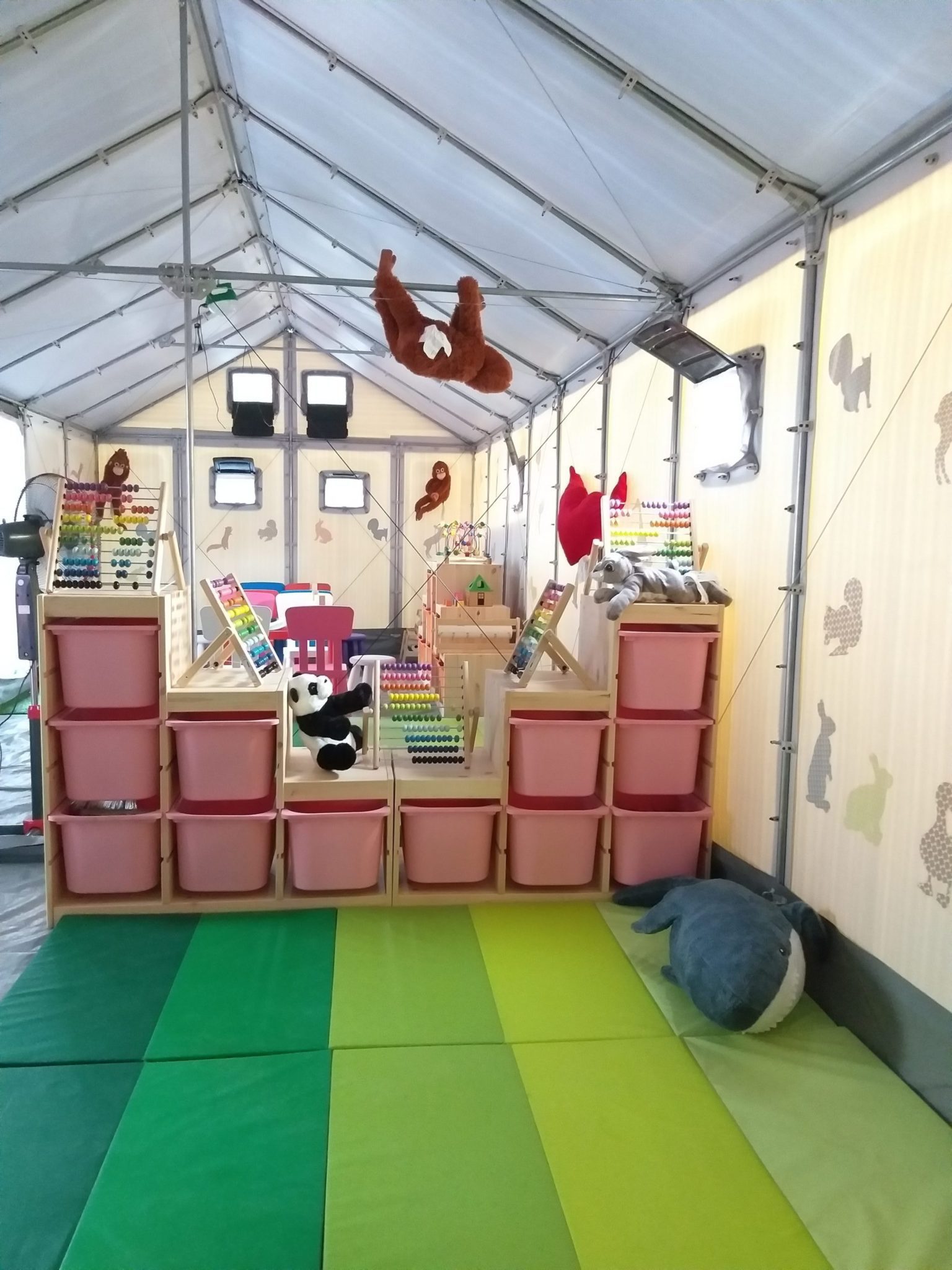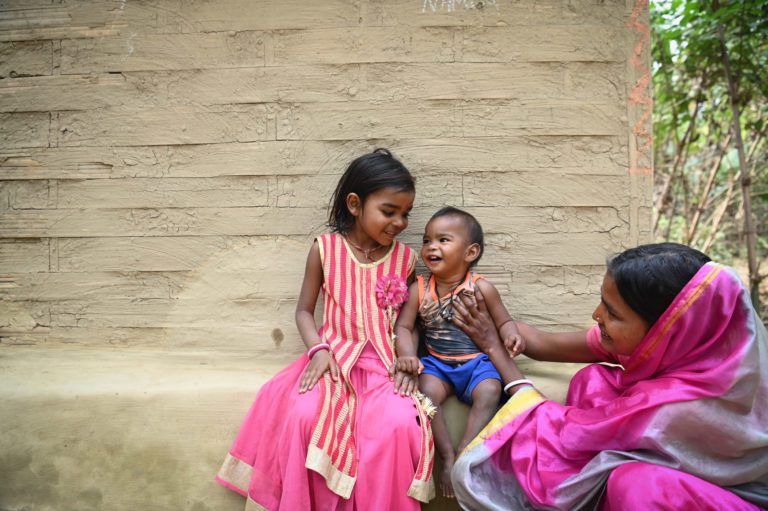In July, August and September 2018, a series of earthquakes and several aftershocks outside the Indonesian island Lombok caused severe damage: some 80% of buildings in the northern parts of the island were damaged or destroyed, and almost 700,000 people were displaced (IDMC, 2019). Several hundred people were confirmed killed, and more than 1,000 were injured.
A year has passed since then, and infrastructure and buildings have been restored with support from the government and NGOs, but people remain highly affected by the catastrophe. Children risk losing crucial education, as many school buildings were destroyed in the disaster.
Responding to the emergency, Ikea Indonesia has teamed up with two humanitarian NGOs – World Vision – Wahana Visi Indonesia (WVI) and Aksi Cepat Tanggap (ACT) – and installed a learning centre for children in the Pengembuk sub-district. The company will continue establishing additional centres in other locations across North Lombok.
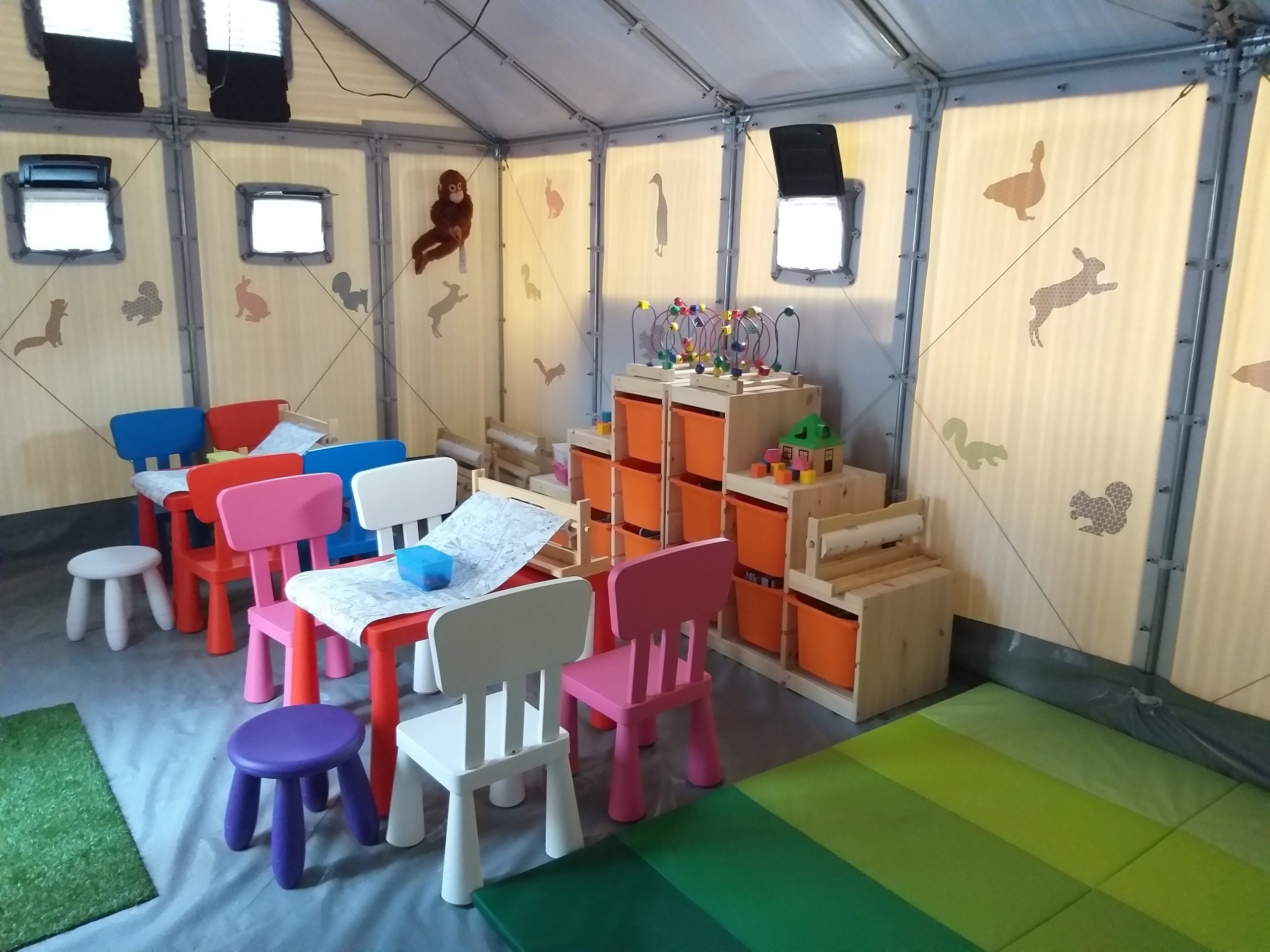
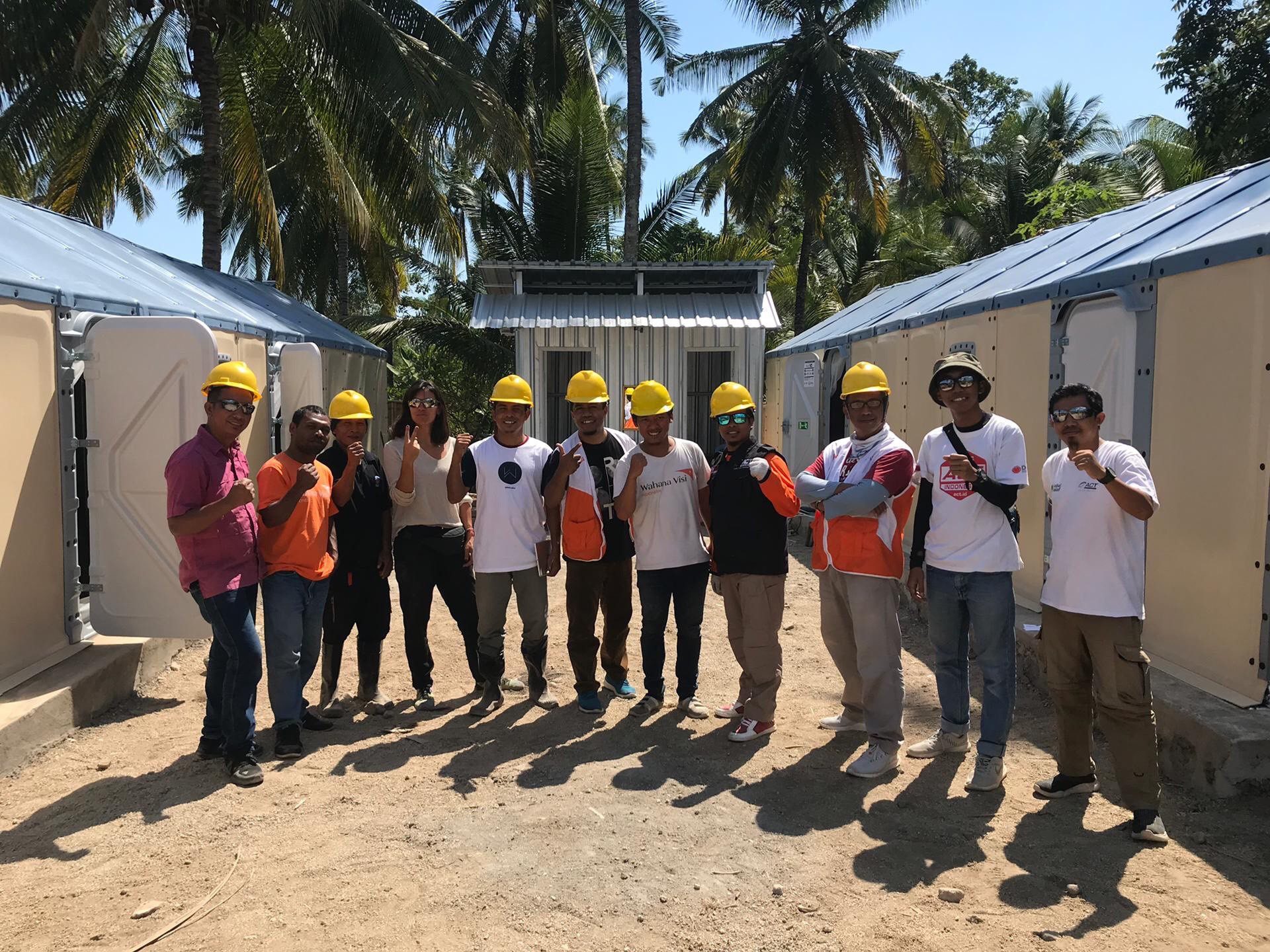
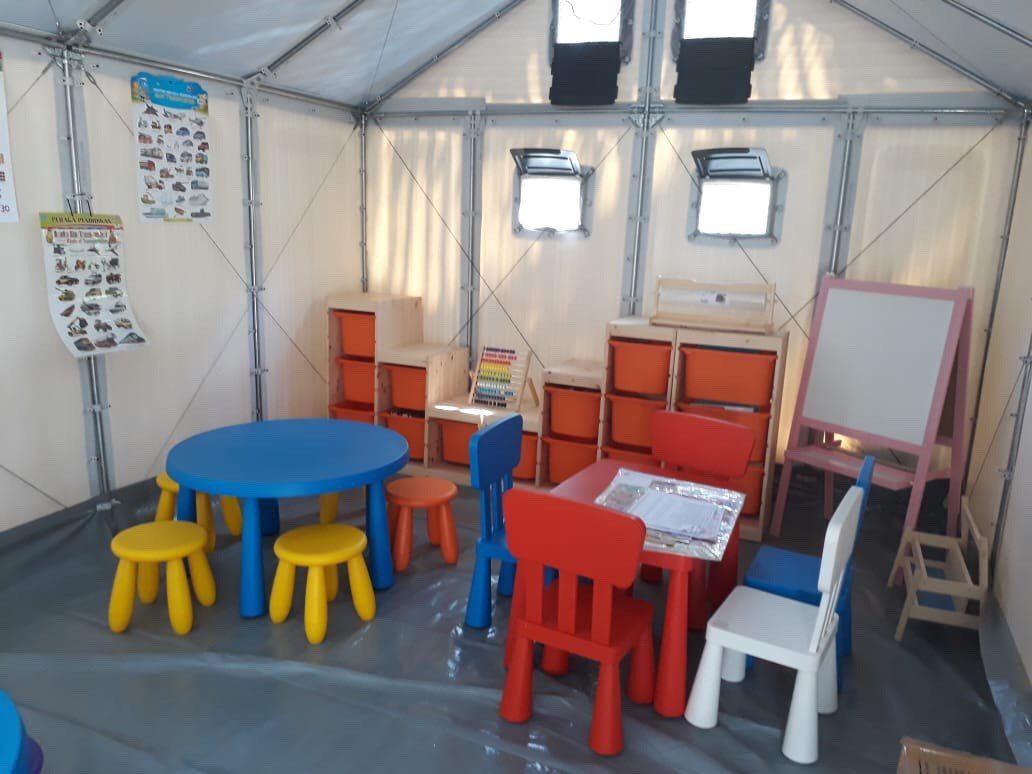
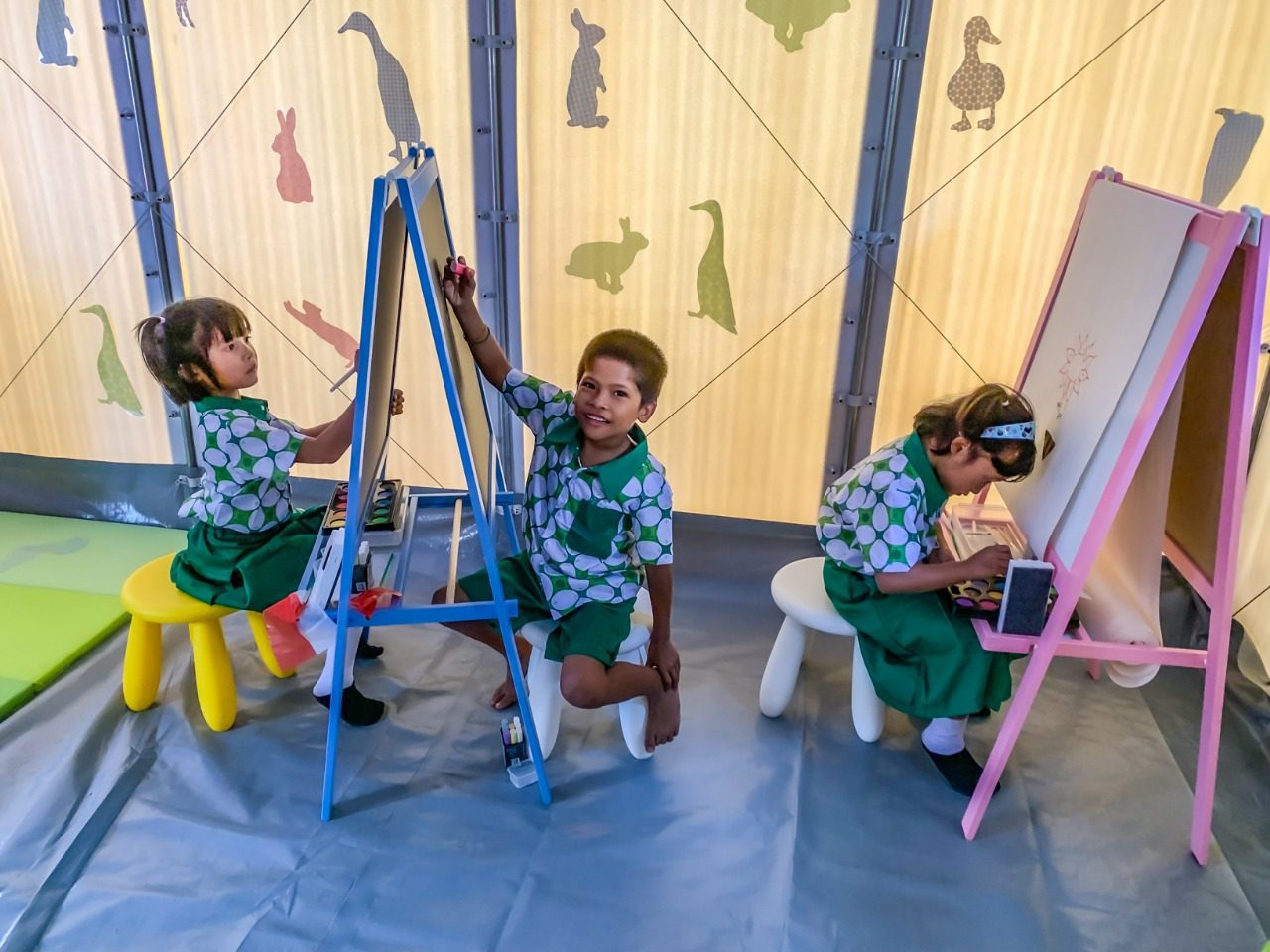
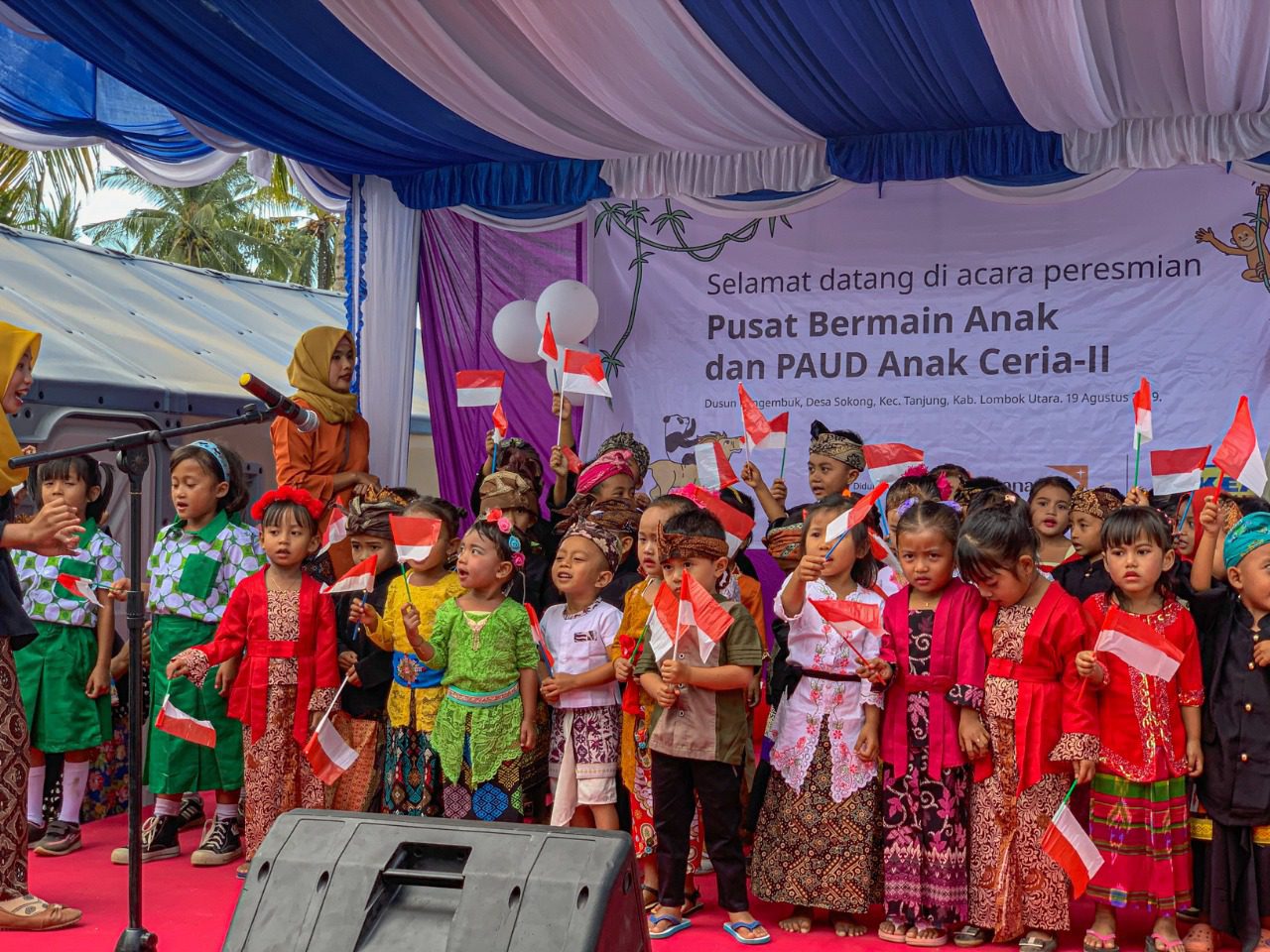
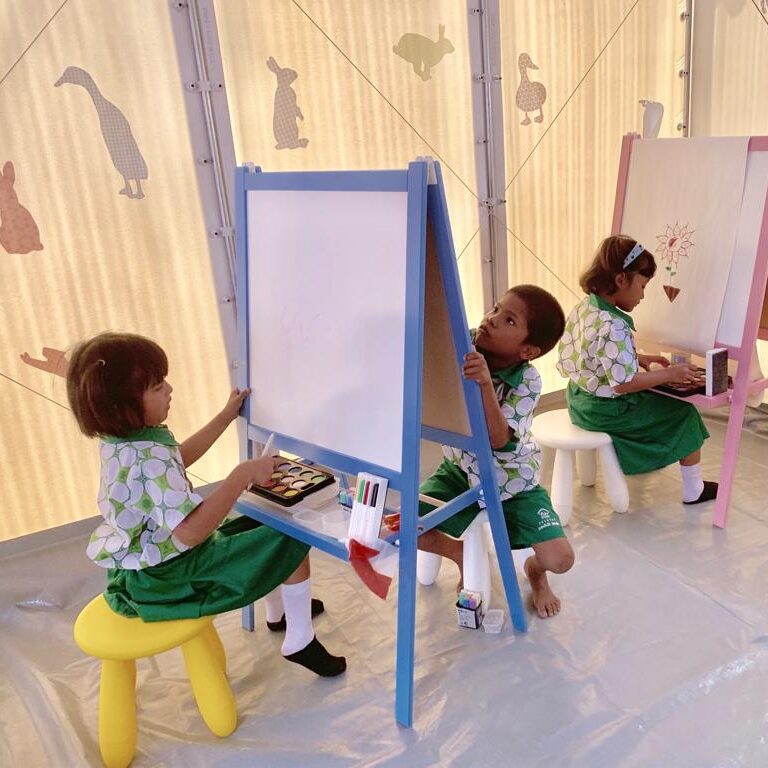
The centre comprises two structures, each consisting of two RHUs interlinked at the short ends, to accommodate various activities for children of different ages. The centre opened in August, and today, 181 affected children – ranging from toddlers to Senior High School students – can play, learn and create new memories with IKEA children’s products in a centre designed with their specific needs in mind. Activities to choose between include reading, painting, drawing, playing with soft toys, building blocks, and other games. The centre, run by teachers and leaders from the community, aims to help children express their thoughts and emotions, build up empathy and self-esteem, and release tension and trauma.
“As part of the Ikea Sustainability program that is people and planet positive, Ikea Indonesia as a good neighbour hopes that the program will inspire and support the Government to build permanent preschool buildings during this recovery time,” says Saras Fitriyana, IKEA Indonesia, about the centre, which will run for one to two years. “Playing is a significant activity that promotes children’s psychosocial well-being and safety, and it also develops their skills, such as relationship building and coping with emotions”, she adds.
Source IDMC, 2019: Indonesia. [Retrieved 28 Aug 2019)

